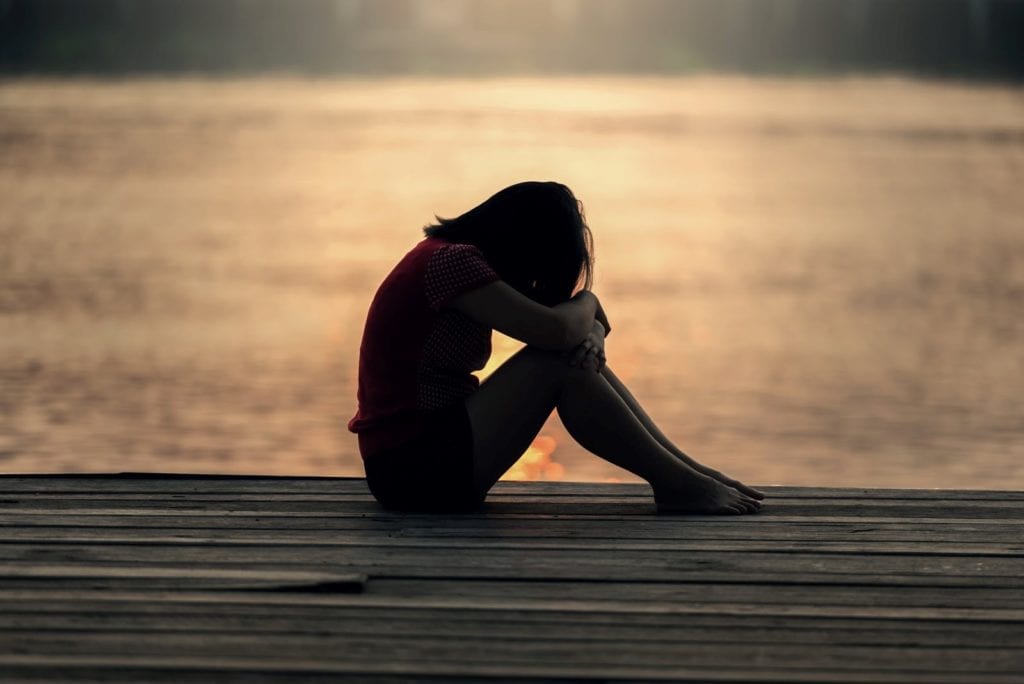
It can be hard to explain depression to someone who has never struggled with it. Being sad after a bad day, or living through the aftermath of a messy breakup can be heartrending and devastating, but is it depression?
J.K Rowling has said, “It’s so difficult to describe depression to someone who’s never been there because it’s not sadness. I know sadness. Sadness is to cry and to feel. But it’s that cold absence of feeling, that really hollowed-out feeling.”
Determining the difference between sadness and long-lasting oppression of dark thoughts and feelings is an important first step to recognizing the battle you are in, and allows you to better determine which supports and which steps you can take today to start getting back to the real you.
Hopelessness
One of the signs of depression is having your general outlook on life and your place in the world bent towards the negative. Feeling hopeless can leave you paralyzed, and may come with thoughts like “What’s the point?” That’s why it’s so important to speak with someone else with experience and expertise, especially those who offer a blend of approaches like the Energetics Institute, who can understand your battle. Because a single approach or treatment may not be the perfect fit for everyone.
Elizabeth Wurtzel, author of Prozac Nation says, “That’s the thing about depression: A human being can survive almost anything, as long as she sees the end in sight. But depression is so insidious, and it compounds daily, that it’s impossible to ever see the end.”
Lethargy and Loss of Interest
Being tired even if you haven’t done anything can be a sign of depression. It comes in multiple forms, whether feeling sluggish, slow thinking and moving, and an inability to concentrate. It can also create a loss of interest in activities and people that used to bring the person joy, whether it’s work, loved ones, hobbies, even sexual desire.
Issues With Sleep
It’s not uncommon for people with depression to report insomnia or excessive sleeping, which can lead to each other and make both problems worse.
Ned Vizzini, in “It’s Kind of a Funny Story” describes it as “I didn’t want to wake up. I was having a much better time asleep. And that’s really sad. It was almost like a reverse nightmare, like when you wake up from a nightmare you’re so relieved. I woke up into a nightmare.”
Pain
Even though it is a seemingly mental struggle, depression can result in very real, yet unexplained physical aches and pains.
It can manifest as back pain, shoulder and neck tension, or stomach aches.
Uncontrollable Emotions
Depression can create anger and irritability, or even mood swings that swing wildly from one emotion to the next.
Sylvia Plath describes it as “I didn’t want my picture taken because I was going to cry. I didn’t know why I was going to cry, but I knew that if anybody spoke to me or looked at me too closely the tears would fly out of my eyes and the sobs would fly out of my throat and I’d cry for a week. I could feel the tears brimming and sloshing in me like water in a glass that is unsteady and too full.”

Thoughts of Death
Depression and suicide have been linked, and that’s why it’s so important to seek help for yourself and reach out to others who are struggling.
If you or someone else is at risk of self-harm immediately call your local emergency number and stay with the person until help arrives. Remove any weapons or medications that could cause harm, and listen well, don’t argue or judge.
Help is Waiting
Depression so often causes us to lose perspective, which makes it hard to reach out for help. But while depression affects millions of lives, there are many supports and caring people who can help, but it takes reaching out and keeping at it until you find a treatment or path that works in your unique situation whether it’s medication, lifestyle changes, or counseling, or a mixture of styles and approaches. There are professionals who work hard every day to help others in their sometimes silent, or unseen battle.
And they may understand your situation better than you think.
As C.S Lewis writes in The Problem of Pain, “Mental pain is less dramatic than physical pain, but it is more common and also harder to bear. The frequent attempt to conceal mental pain increases the burden: it is easier to say “My tooth is aching” than to say “My heart is broken.'”


